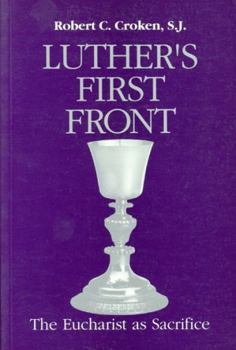Luther's First Front: The Eucharist as Sacrifice
Since the Reformation in the sixteenth century, one of the basic divisions between Catholics and Protestants has been the concept of the mystery of the Eucharist and its meaning to modern Man. In this new study, Robert C. Croken tries to explain why Luther's view of the Eucharist is pivotal to ecumenical dialogue among Christians.
The sacrificial dimension of the Eucharist is one of the tenets Luther opposed, although this basic theme has often been neglected in recent research. This study focuses on Luther's rejection of the Eucharist as a sacrifice and a good work, a major doctrinal shift from previous Catholic belief. Explaining the historical origins of the debate, Robert Croken shows the reader where the Roman Catholic and Lutheran churches have grown apart and where they have found agreement. This book is a systematic study of Martin Luther's writings in the context of his break with Rome, and will be of value to scholars and theologians of modern Christianity searching for common ground in ecumenical discussions.Format:Paperback
Language:English
ISBN:0776603000
ISBN13:9780776603001
Release Date:January 1990
Publisher:University of Ottawa Press
Length:176 Pages
Weight:0.65 lbs.
Age Range:18 years and up
Grade Range:Postsecondary and higher
Customer Reviews
0 rating





